Tiny Spaces, Big Smiles: 10 Clever Family-Friendly Decor Hacks for Small Homes
Introduction
In today’s world of rising housing costs and urban living, more families are opting for smaller homes — and that means getting creative with space-saving solutions. Decorating a small space can feel like solving a puzzle every day, especially when you have kids, pets, and a busy lifestyle. But guess what? A small space doesn’t mean you have to sacrifice style, comfort, or functionality.
In this article, we’ll walk you through 10 clever, kid-friendly, and practical decorating hacks that turn your compact home into a warm, welcoming haven for the whole family. Plus, we’ve included a handy product guide so you know exactly where to shop for smart storage and multipurpose furniture!
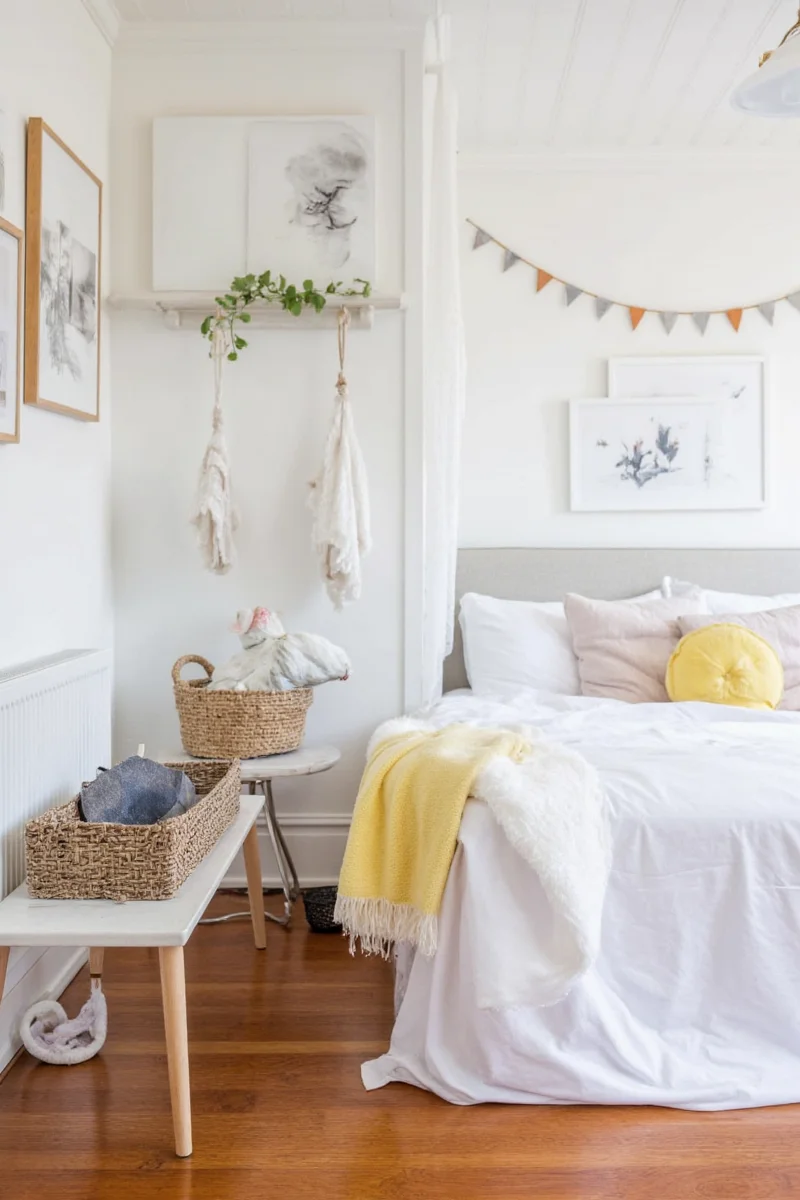
1. Choose Multi-Functional Furniture Like a Pro
Small spaces call for genius furniture choices — think ottomans with hidden storage, sleeper sofas that double as beds, and coffee tables that convert into dining tables.
- Ottoman with Storage: Great for stashing blankets, toys, or board games.
- Wall Beds: Ideal for guest rooms or kids’ rooms where floor space is precious.
- Foldable Tables: Perfect for mealtime in tight corners.
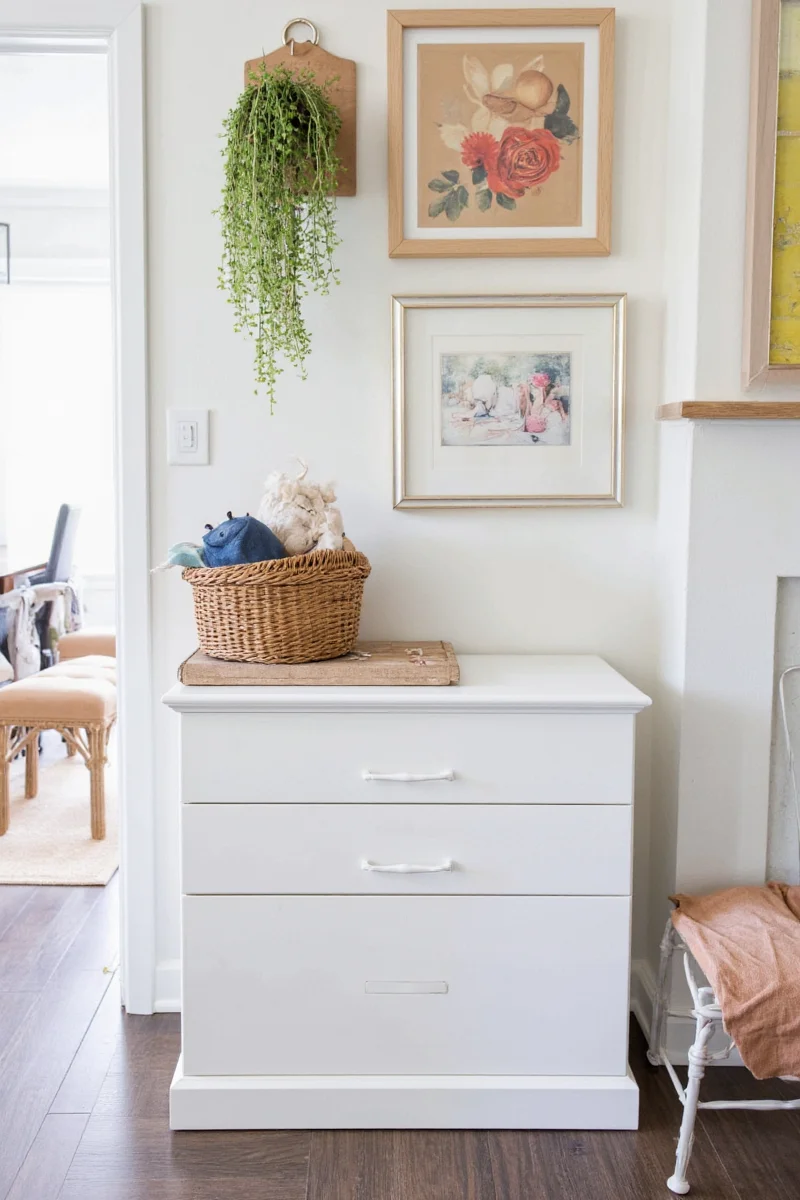
2. Go Vertical, Not Horizontal
When square footage is limited, look up! Shelves, floating desks, and high cabinets help you utilize vertical space without cluttering the floor.
| Horizontal Storage | Vertical Storage |
|---|---|
| Bulky toy boxes | Hanging toy organizers |
| Low dressers | Tall bookshelves with bins |
| Traditional side tables | Wall-mounted floating shelves |
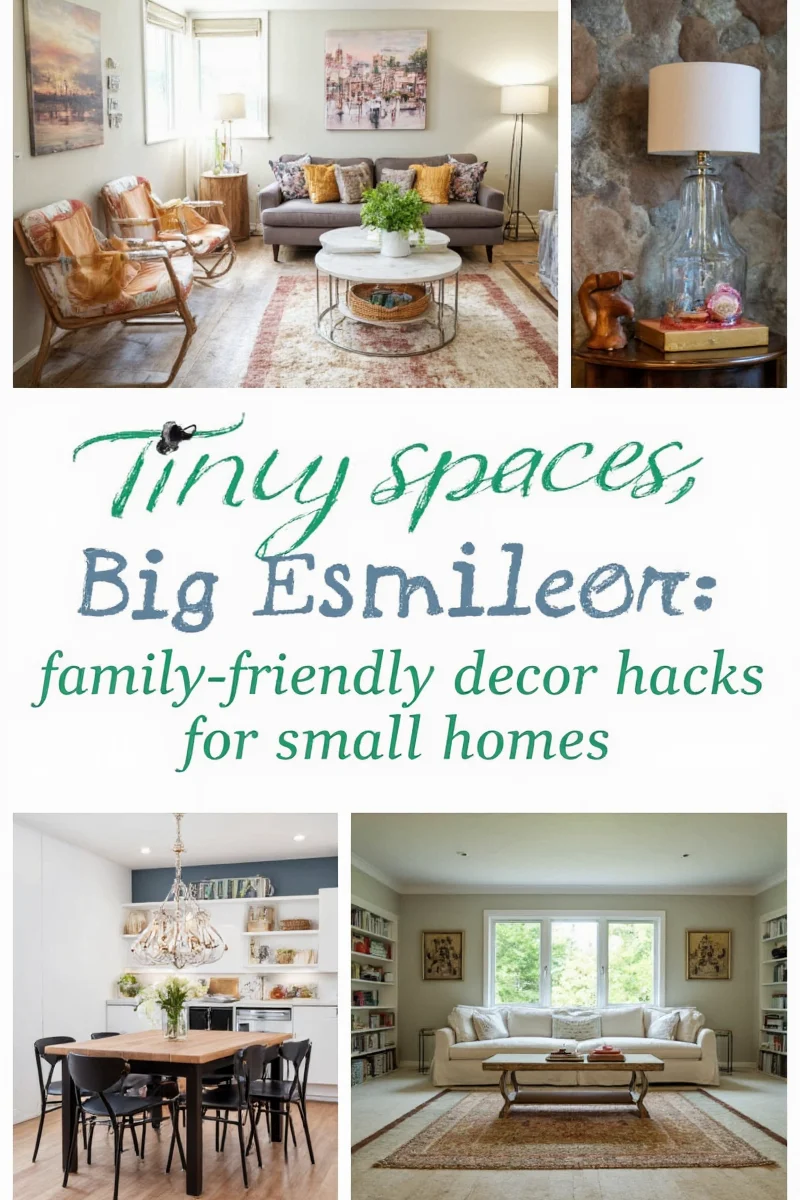
3. Stick to a Light Color Palette
Light walls, floors, and furniture make a small space feel open and airy. Think whites, creams, pastels, and soft grays. If you’re worried about stains from little hands (and paws), go for wipeable paints or washable wallpaper!
- Paint tip: Use gloss paint on trim and semi-gloss on walls for easier cleaning.
- Decor tip: Add pops of color with removable stickers, wall decals, or fabric accessories.
4. Declutter Ruthlessly (But Thoughtfully)
With less space, stuff accumulates faster. Adopt a “one in, one out” rule, and be strategic about what you keep. Use baskets, labeled bins, and under-bed storage to hide clutter while keeping things accessible.
- Create zones: One bin for toys, another for books, etc.
- Use stackable storage containers for seasonal items.
- Label everything (especially if multiple people share the space).
5. Let in Natural Light (And Fake It When You Can’t)
Natural light opens up a space instantly. If your small room lacks windows, use mirrors to bounce light around and opt for sheer curtains to let in as much daylight as possible.
At night, go for layered lighting — a mix of ceiling lights, floor lamps, and plug-in sconces keeps the space warm and functional.
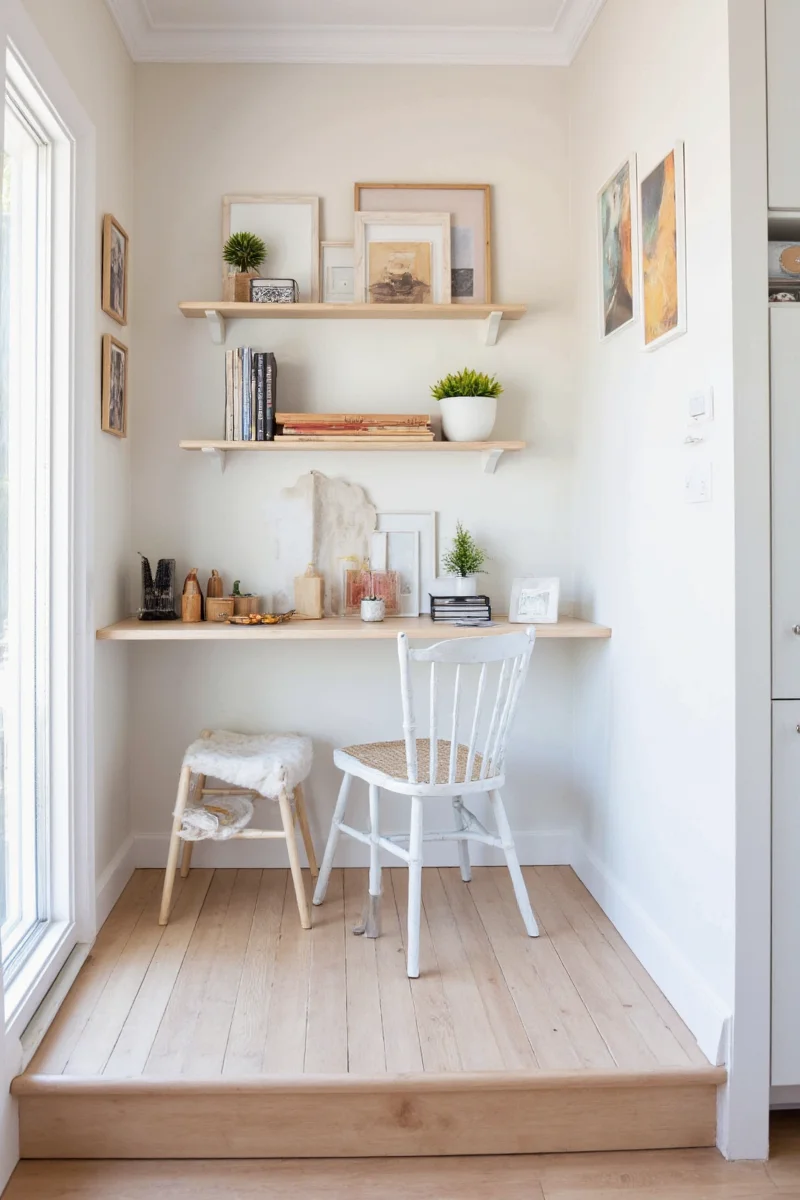
6. Opt for Round Over Rectangular
Sharp corners can make a space feel cramped. Swap rectangular tables and chairs for round ones to create a softer, more open flow.
- Round coffee tables are safer for toddlers too!
- Consider oval mirrors or circular rugs for added visual balance.
7. Keep Toys Organized but Invisible
If you’ve got kids, toys will always find their way everywhere. The key is to store them smartly. Use furniture with hidden compartments, like benches or beds with drawers, and designate play zones with rugs or mats.
- Magnetic whiteboards or chalkboard panels keep doodles off the walls.
- Toy hammocks under beds are perfect for stuffed animals.
8. Create Zones Without Walls
In an open-concept small home, define areas using rugs, furniture arrangement, and lighting. A low bookshelf can act as a subtle divider between the living area and dining nook.
- Rug placement helps anchor each zone.
- Different light fixtures or lamp styles also help differentiate areas.
9. Choose Scaled-Down, Not Squished-In
Just because it’s small doesn’t mean you should overcrowd it. Pick furniture that’s proportional to the room. A mini loveseat might work better than a full-sized couch. Look for pieces with exposed legs to give the illusion of more space.
- Avoid oversized artwork — go for smaller gallery walls instead.
- Choose slim lamps and narrow consoles to avoid bulk.
10. Add Personality Without Clutter
Your small space can still reflect your personality. Use removable wall art, magnetic picture frames, or peel-and-stick wallpaper to add flair without permanence. Rotate seasonal decorations to keep things fresh.
- Use clipboards to display your kids’ artwork — easy to swap out!
- Add a few statement plants or a hanging garden if floor space is tight.
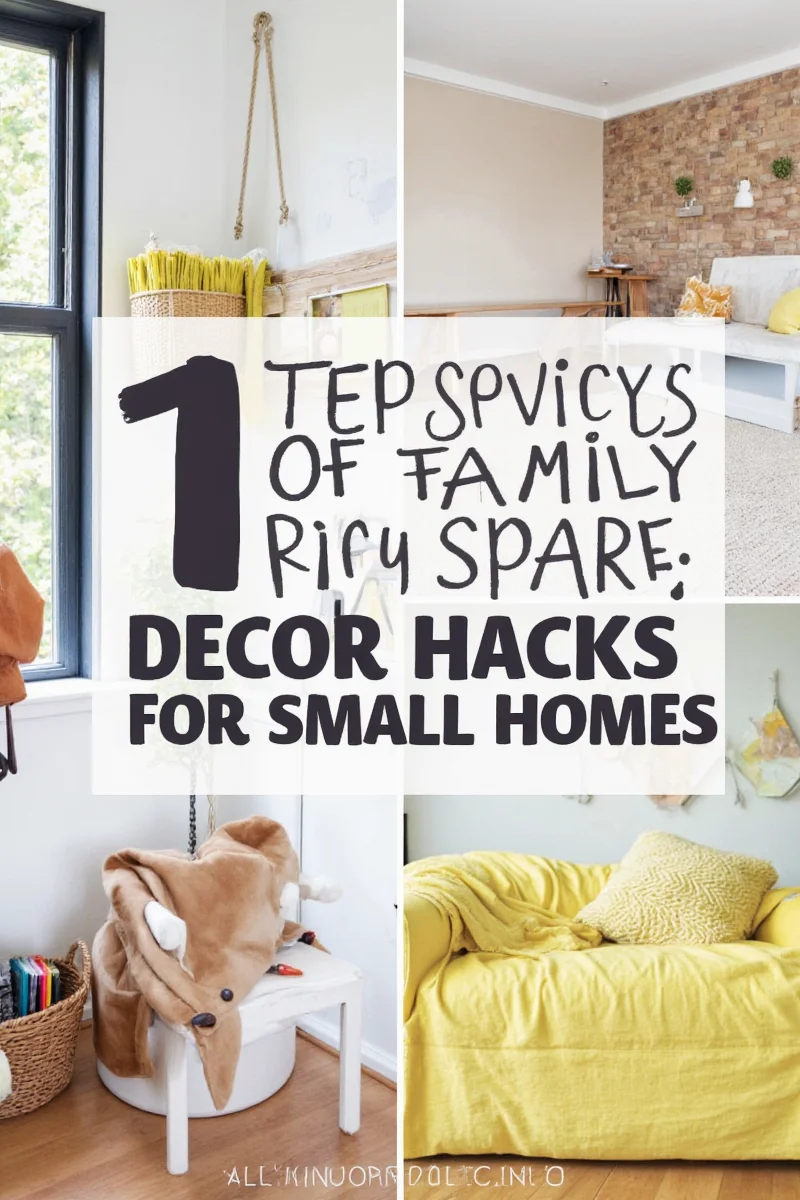
Buying Guide: Top Picks for Family-Friendly Small Space Decor
We’ve rounded up some must-have products that blend function, safety, and style for small, family-centric homes.
| Product | Features | Best For | Why We Love It |
|---|---|---|---|
| Staple+ Stacker Storage Bench | Multipurpose bench with 4 internal compartments; available in various colors | Families needing extra seating + storage in entryways, mudrooms, or living rooms | Easy assembly, neutral design fits any decor, and wipes clean effortlessly |
| Zipbinz Hanging Toy Organizer | Soft mesh bins that hang over doors or rails; machine-washable fabric | Kids’ rooms, playrooms, or shared bedrooms | Keeps toys off the floor, reduces mess visually, and encourages kids to tidy up |
| Ikea NORDEN Folding Table | Compact drop-leaf table that folds flat against the wall when not in use | Dining in small kitchens, homework stations, or breakfast nooks | Perfect for saving space while hosting meals or work sessions |
| Lucid Murphy Bed with Trundle | Space-saving wall bed with an additional pull-out trundle bed | Guest rooms, kids’ rooms, or studios that need dual sleeping solutions | All-in-one design eliminates the need for bulky furniture |
| Clean Cut Wall Decals | Removable wall art in playful themes like planets, dinosaurs, and jungle animals | Kids’ rooms, nurseries, or daycare spaces | No residue, easy to apply/remove, customizable by theme or color |
Conclusion
Living in a small space doesn’t mean you have to compromise on style or comfort — especially when you're raising a family. With thoughtful planning, multi-functional furniture, and smart storage tricks, you can create a space that’s both beautiful and livable.
Whether you’re designing a starter home, a city apartment, or just trying to optimize your current layout, these tips will help you embrace your small space — and even fall in love with it. So grab a measuring tape, get inspired, and start making your tiny space big on personality and charm!

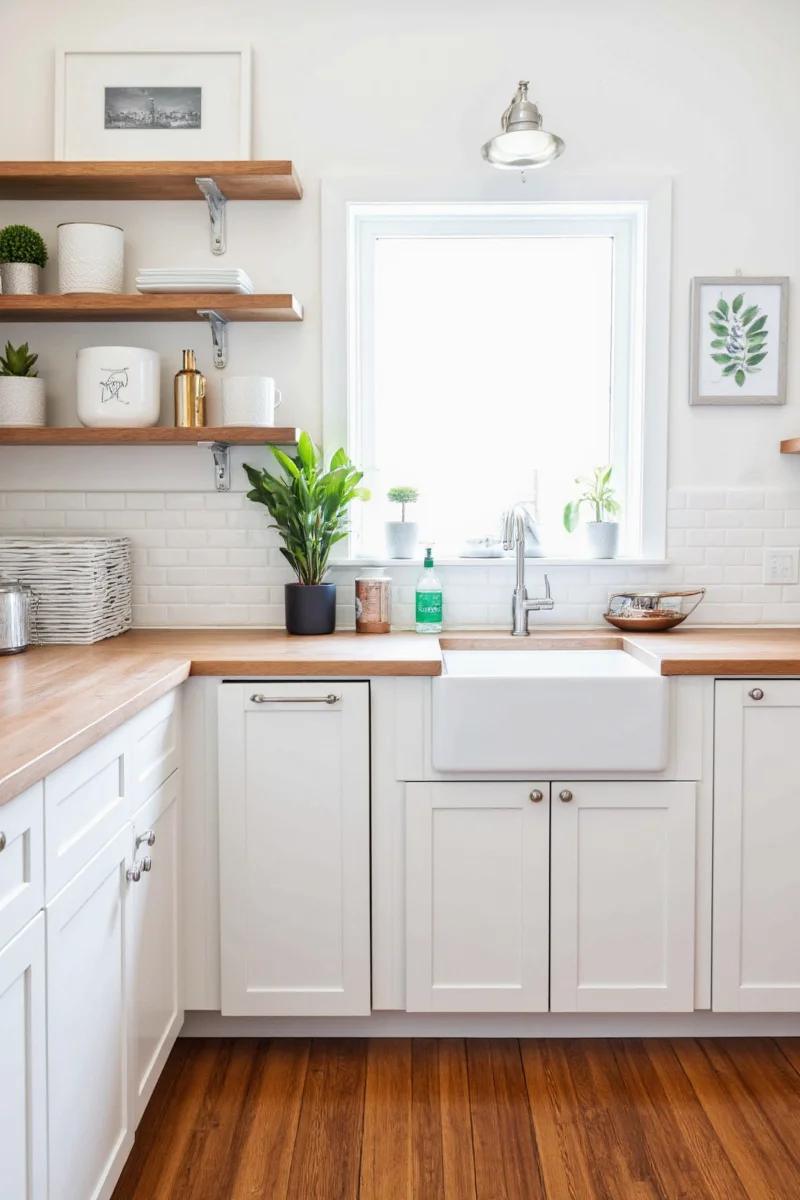









 浙公网安备
33010002000092号
浙公网安备
33010002000092号 浙B2-20120091-4
浙B2-20120091-4